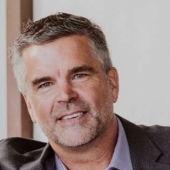
Challenges with securing aquaculture permits in California
David Willett, Founder, Santa Barbara Sea Ranch, USA

Challenges with securing aquaculture permits in California
David Willett, Founder, Santa Barbara Sea Ranch, USA
About speaker:
Mr. Willett is an avid sailor who enjoys the ocean and seafood. He also has a desire to contribute the sustainability of the planet, which led him to pursue the creation of Santa Barbara Sea Ranch (SBSR). He has held senior executive positions in the aerospace, automotive, and renewable energy fields and holds an MBA, MSEE, and BSEE.
Company:
SBSR will be a 176-acre offshore mariculture farm that will grow Mediterranean mussels (Mytilus galloprovincialis), Pacific Oysters (Crassostrea gigas/Magallana gigas), and, eventually, purple-hinge rock scallops (Crassadoma gigantea). The farm location will be offshore from Santa Barbara, California, approximately five miles west of Santa Barbara Harbor and within one mile of the shoreline. The farm will employ 80 “longlines” that will be used to suspend mussels growing on rope, and oysters and scallops growing in baskets.
Currently, SBSR, working with ECORP Consulting Services, has come to an agreement with CFG for the remaining Environmental Impact Review work to be completed under the California Environmental Quality Act. SBSR believes that the project should have been approved under a Mitigated Negative Declaration and already be harvesting shellfish, but due to the debacle of the Catalina Sea Ranch, the agencies are more stringent today. SBSR is now looking for the right investment partner to fund the project.
When at full capacity, the farm will produce over 2.7M pounds of mussels and 300,000 pounds of oysters each yearPresentation:
In 2018, Santa Barbara Sea Ranch, Inc. (SBSR) was the first applicant for a California state water bottom lease in over 25 years. Despite it being determined by the CA Fish & Game Commission (FGC), within months of receiving the application, that the lease would be in the public interest, over six years have gone by and SBSR is still working to secure the lease. This presentation will describe the nature of the challenges we have faced and offer suggestions to others for overcoming them more quickly than we have in the future.
An applicant for a state water bottom lease must satisfy the requirements of the California Environmental Quality Act (CEQA). The California Environmental Quality Act is a California law that requires public agencies and local governments to evaluate and disclose the environmental impacts of development projects or other major land use decisions, and to limit or avoid those impacts to the extent feasible. Due to the horrible failure in 2020 of Catalina Sea Ranch, a 100-acre mussel farming operation in federal waters about six miles offshore of Huntington Beach, CA, the permitting process is now extremely difficult. State and federal agencies are exceedingly reticent to have a repeat of Catalina Sea Ranch.
See: https://calmatters.org/environment/2020/05/california-shellfish-farming-aquaculture/
SBSR has worked with the FGC, the California Department of Fish and Wildlife, the California Coastal Commission, the California Department of Public Health, NOAA, and the Army Corps of Engineers to solicit and incorporate their individual requirements for the necessary permitting throughout the entire process. The first hurdle in the process is to secure the state water bottom lease from the FGC. At the time that SBSR applied for the lease the FGC had not issued one for over 25 years and was able to provide virtually zero support or guidance for how to go about the process.
After six years of effort, SBSR is close to being able to satisfy the full requirements of a CEQA Environmental Impact Review. Many lessons have been learned and we would like to share them others to help improve the likelihood of future success and expansion of aquaculture in CA.